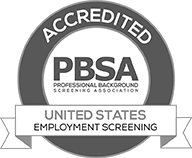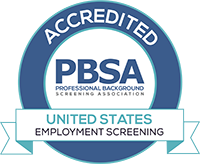BLOG
Kentucky Considers A Clean Slate Act
February 27, 2024
Legislators in KY are deliberating over a bill that would create automatic expunction opportunities for certain misdemeanors and felonies.
House Bill 569
Kentucky’s proposed House Bill 569 (HB569) is a Clean Slate law that seeks to establish automated expungements for various types of convictions. It would also create allowances for the Commonwealth's and County Attorney to object to certain records being expunged.If HB569 passes, it would eliminate the need for people who have eligible criminal records to petition for expunction. Supporters of the Act feel it would be a great way to give residents a new path forward to find employment and re-enter society.
Eligible Records
HB569 explains types of convictions that would be eligible for automatic expungement if the bill passes. They include any:- Felony conviction that meets requirements that were established by existing Kentucky law, KRS 431.073(1).
- Any conviction that meets the requirements established by Kentucky law KRS 431.078(1) and does not violate other KY laws.
Additionally, the holder of a record must have:
- Completed their sentence, probation or parole (whichever occurs later) at least five years ago.
- Not re-offended within that five-year timeframe.
- No pending misdemeanor or felony charges.
The Expunction Process
Should the Clean Slate Act be made into law, then on August 15, 2027, and then on the 15th day of every month thereafter, the Administrative Office of the Courts would be responsible for providing a list of convictions that can be expunged and provide them to the courts where each case was initially heard.From there, depending on the type of conviction, the court would be required to:
- Order the expungement of applicable records, including those that are held by the court or any other agency. The court must then inform the Office of the Commonwealth's Attorney or County Attorney and may order any criminal history provider to expunge its records.
- For records that can be reviewed and subject to an objection, the court must inform appropriate parties and give them 60 days to review. If no objection is made within 60 days, then the court will proceed with the expungement process.
- If an objection is made, then the court will inform the person who holds the record that it may not be expunged.
Once A Record Is Expunged
Clean Slate Acts and other Second Chance laws have been passed throughout the United States. They typically allow for certain types of records to be expunged upon meeting a specified set of criteria. Once a record is expunged, it can no longer be reviewed or considered by employers or other entities that make decisions about consumers. The person who held the record may act as if it never occurred.It is essential for employers to not make decisions about consumers based on a record that was expunged. A great way to help prevent that is to work with a Consumer Reporting Agency (CRA) which is accredited by the Professional Background Screening Association (PBSA). These CRAs have demonstrated that they follow reasonable procedures to only provide current, accurate and reportable records.
Employment Background Checks
If your organization needs background checks for employment purposes, please contact us. We are an accredited CRA with more than 20 years of experience. Our dedicated team can help you customize screening packages that suit your needs as well as applicable laws and industry regulations.
Backgrounds Online is based in California and our friendly team is available to assist you Monday through Friday from 5am to 6pm PT.







